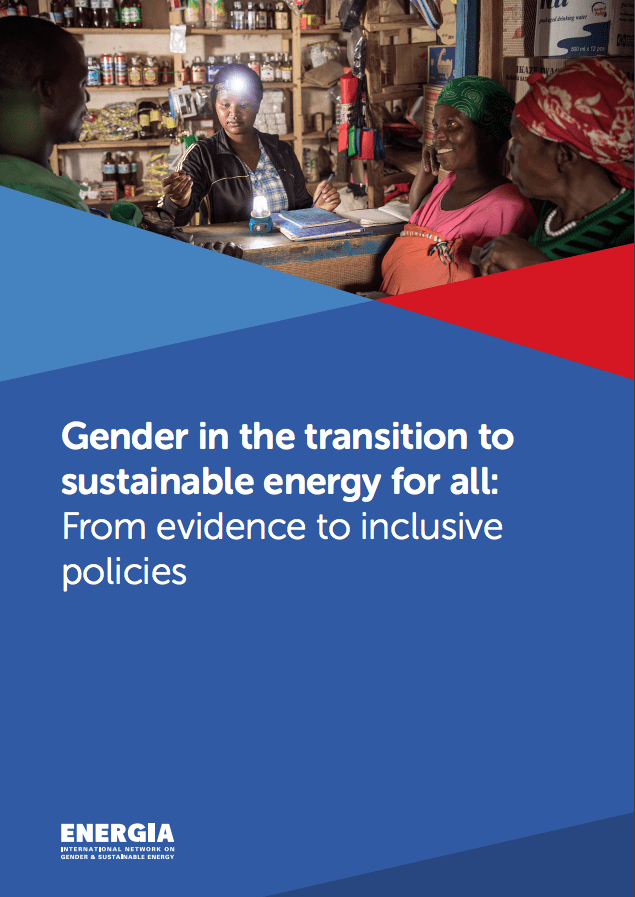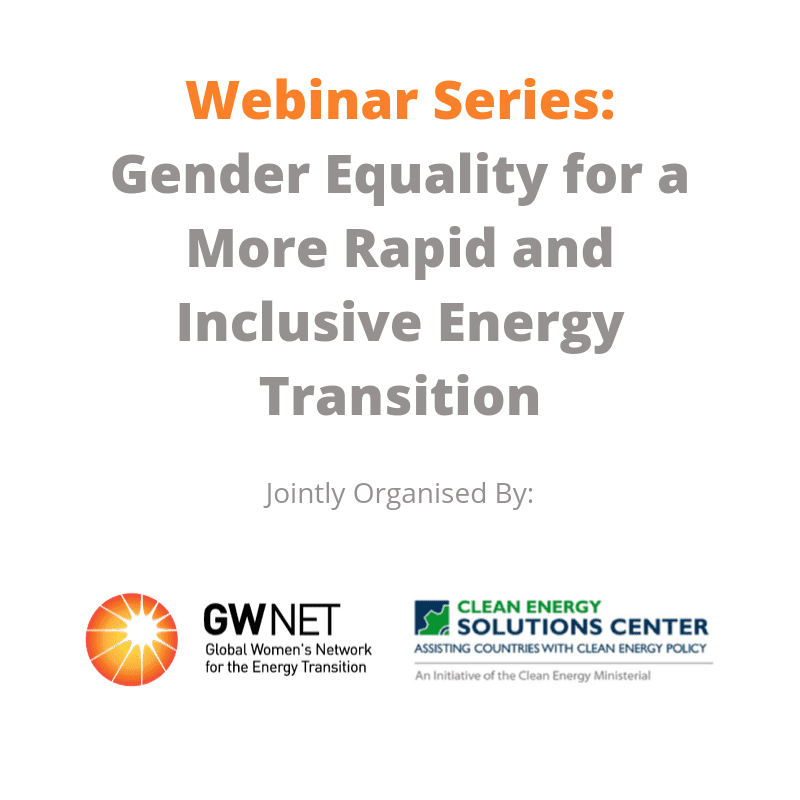ENERGIA, in collaboration with nine research teams recently released a new report “Gender in the transition to energy for all: From evidence to inclusive policies.”
This report, collated after a five-year Gender and Energy Research Programme, shares synthesized evidence on the benefits of taking a gender approach in energy access interventions, and aims to translate this into recommendations for energy policy and practice.
The report identifies six key messages from nine research areas and two commissioned reports and develops a number of policy implications and recommendations to create a gender-inclusive environment in the energy sector.
The key research findings include:
- Universal energy access targets are unlikely to be met unless energy policies are aligned to women’s as well as men’s energy needs, their assets, skills, limitations and capabilities, and existing gender norms
- Involvement of women in energy-system supply chains is good for women and their families, and it is good for business
- Modern energy services for women’s productive uses contribute to women’s empowerment
- End-use appliances that deliver modern energy services to reduce drudgery and save time can transform gender roles and relations
- Improving the affordability, reliability, capacity and convenience of modern energy services can help achieve gender-equitable access and outcomes
- Engaging with political processes can help women access modern energy services and change gender norms
Furthermore, key policy recommendations to improve gender-sensitive practices in the energy sector include:
- Engaging both women and men in the design, implementation, and monitoring and evaluation of energy policies and programmes;
- Involving women in energy-system value chains and employment, both by overcoming gender barriers and through equal opportunity strategies;
- Improving the reliability, convenience and quality of energy supply to increase women’s and men’s access to and use of energy services;
- Increasing women’s ability to afford energy services through innovative financial mechanisms and through improving the enabling environment for women;
- Multiplying the social and economic impacts of energy access by targeting women’s productive uses and social infrastructure; and
- Supporting women’s role in energy decision-making at household, organisational, and policy levels.











